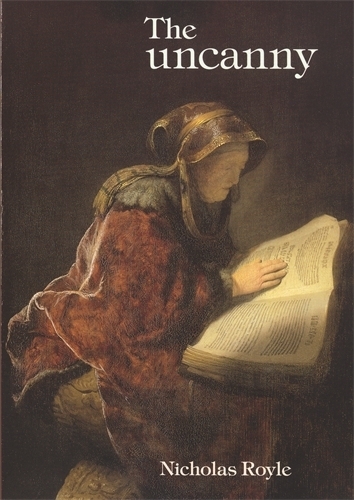
The Uncanny
(Paperback)
Publishing Details
The Uncanny
By (Author) Nicholas Royle
Manchester University Press
Manchester University Press
13th February 2003
United Kingdom
Classifications
General
Non Fiction
Occult studies / Supernatural studies
Unexplained phenomena / the paranormal
133
Physical Properties
Paperback
352
Width 156mm, Height 234mm, Spine 19mm
499g
Description
This study is of the uncanny; an important concept for contemporary thinking and debate across a range of disciplines and discourses, including literature, film, architecture, cultural studies, philosophy, psychoanalysis and queer theory. Much of this importance can be traced back to Freud's essay of 1919, "The Uncanny" (Das Unheimliche). Where he was perhaps the first to foreground the distinctive nature of the uncanny as a feeling of something not simply weird or mysterious but, more specifically, as something strangely familiar. As a concept and a feeling, however, the uncanny has a complex history going back to at least the Enlightenment. Royle offers a detailed historical account of the emergence of the uncanny, together with a series of close readings of different aspects of the topic. Following a major introductory historical and critical overview, there are chapters on the death drive, deja-vu, "silence, solitude and darkness", the fear of being buried alive, doubles, ghosts, cannibalism, telepathy and madness, as well as more "applied" readings concerned, for example, with teaching, politics, film and religion.
Reviews
'Without doubt the outstanding book in critical and cultural theory published in 2003' -- Martin McQuillan, Edtiro of The Year's Work in Critical and Cultural Theory, for the English Association
'This is a brilliant book, Royle's writing is astonishingly adventurous. The book is indispensible to any study of the uncanny and thus to any study of literature. A critical tour de force.' -- Textual Practice
'A playful, scholarly study. Densely and allusively argued, yet also full of pregnant one-liners. A fascinating and ambitious work.' -- The Guardian
'At last, a philosophical work that discusses ghosts and madness seriously. Royle, in a style that is warmly engaging right from the preface, speaks directly to the reader. For an academic book this is a hell of a page-turner. A compulsive book.' -- Pireandello.org.uk
Author Bio
Nicholas Royle is Professor of English at the University of Sussex
